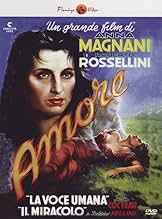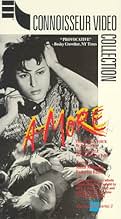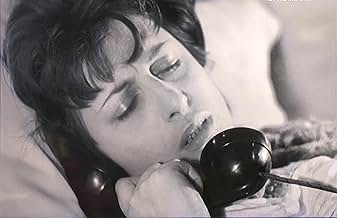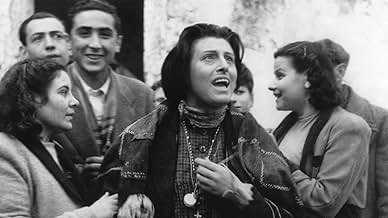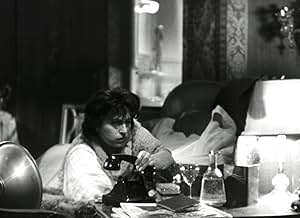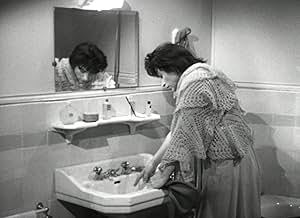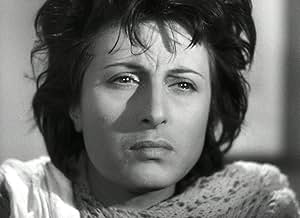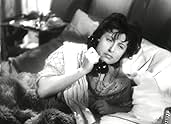It has been noted elsewhere that this film is a fine indicator of Italian filmmakers' rupture with Neorealism, and how (in the second segment) they often turned to satire and the grotesque, a liking they shared with Spanish colleagues. "Una voce umana", the first segment, based on Jean Cocteau's 1930 monologue, about a woman who resists to break up with a man on the telephone, is the weakest part, not because of the text, Rossellini's direction or Magnani's performance. For me the problem is that the lady in question is anything but in love. She is obssessed and crazed, and after a few minutes, her addiction turns tiresome. Magnani tries had, Rossellini moves her all around the apartment, but she awakens little compassion.
Then there is "Il miracolo", from an idea by Federico Fellini (no proof has been found that it was plagiarized from a text by Ramón María del Valle Inclán, a master of the grotesque), in which Nanni, a beggar, is seduced by a traveler, and the poor woman assumes her pregnancy as a divine design. The segment created a little scandal in the United States in the 1950s, as it happened years later with "The Last Temptation of Christ", but today no Catholic hypocrit would think of raising an inquisitive voice over Nanni's sad story.
It is a nice job for in Rossellini's evolution as an author and another demonstration of la Magnani's art, but other than that it's an overrated minor work.

